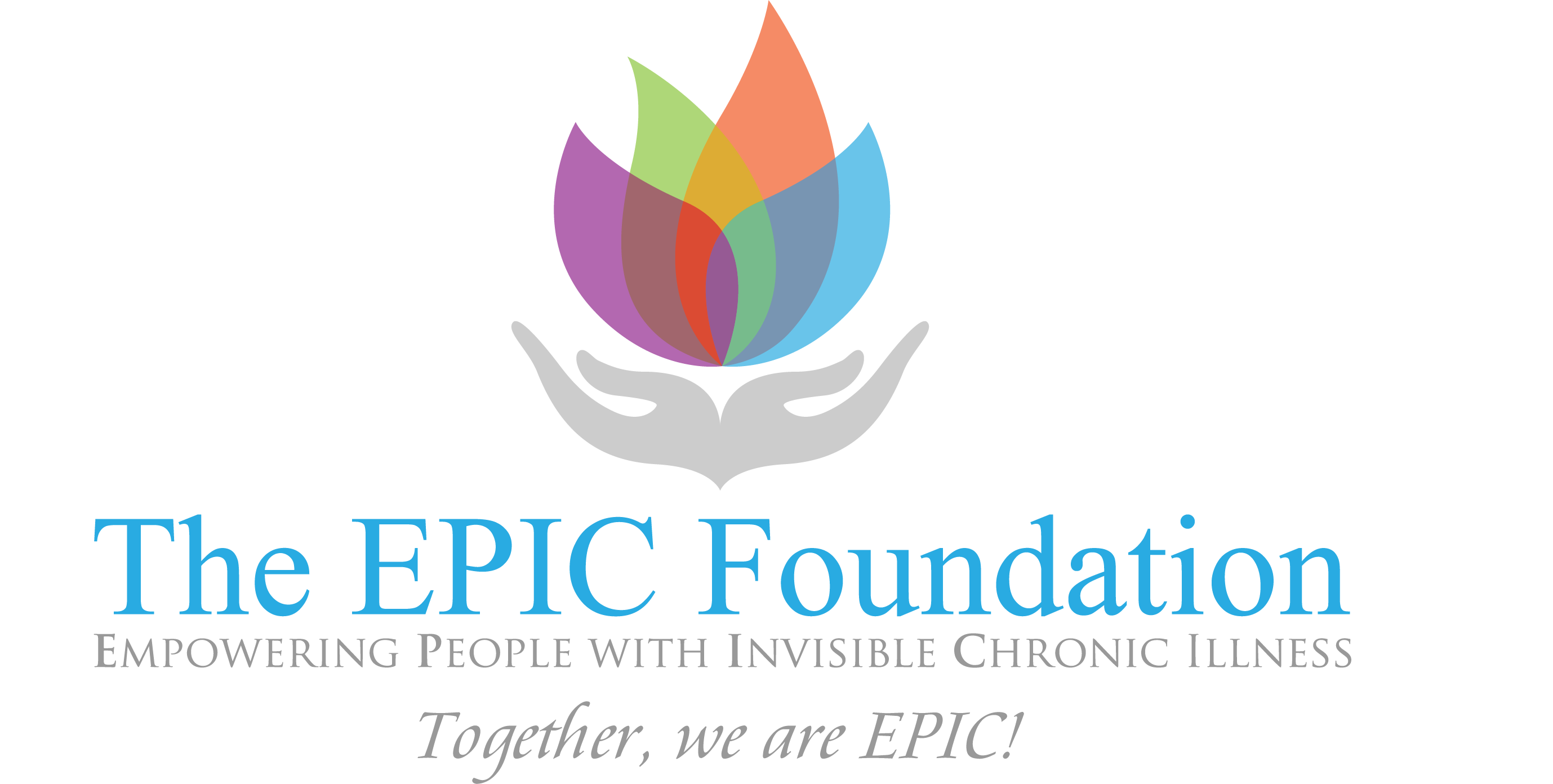Crohn’s Disease (Patient perspective)
By Keya Graves for The EPIC Foundation
Many people are often confused about what exactly is happening to the body when a person has Crohn’s Disease. People with the condition are often dismissed for “not looking sick”.
Crohn’s disease is a chronic inflammatory condition of the gastrointestinal tract. Crohn’s disease belongs to a group of conditions known as Inflammatory Bowel Diseases (IBD), which are often mistaken for IBS (Irritable Bowel Syndrome).
Crohn’s affects the lower end of the small bowel and the colon. It can be widespread throughout the gastrointestinal tract affecting nearly every part of the digestive system.
Crohn’s disease affects men and women alike, and while the disease can occur at any age, Crohn’s is more prevalent among adolescents and young adults between the ages of 15 and 35.
The causes of Crohn’s Disease are not fully understood. Like many autoimmune diseases, cause can never be pinpointed. Diet and stress may aggravate Crohn’s Disease, but they do not cause the disease on their own. Some doctors suggest hereditary, genetics, and/or environmental factors contribute to the development of Crohn’s Disease.
Crohn’s is an autoimmune disorder. The GI tract normally contains harmless bacteria, many of which aid in digestion. The immune system usually attacks and kills foreign invaders, such as bacteria, viruses, fungi, and other microorganisms. Under normal circumstances, the harmless bacteria in the intestines are protected from such an attack. In people with IBD, these bacteria are mistaken for harmful invaders and the immune system responds in a negative way. Cells travel out of the blood to the intestines and produce inflammation (a normal immune system response). However, the inflammation does not subside, leading to chronic inflammation, ulceration, thickening of the intestinal wall, and eventually causing symptoms.
Symptoms
Crohn’s disease symptoms are often mistaken for other illnesses and can vary from person to person. Some of the most common signs include:
- Persistent Diarrhea
- Rectal bleeding
- Urgent need to move bowels
- Abdominal cramps and pain
- Sensation of incomplete evacuation
- Constipation
- Varying appetite
- Fever
- Rapid Weight Loss
- Fatigue
- Night Sweats
- Women (Loss of normal menstrual cycle)
Many of the symptoms associated with Crohn’s disease are closely linked to other diseases and disorders, making a true diagnosis extremely difficult.
Diagnostics:
Testing such as endoscopy and biopsy are usually recommended by doctor. These are invasive visual tests needed to examine the upper and lower GI system including the throat and rectum.
Once testing and a full diagnostic are given; treatment options can help to keep the Crohn’s under control.
Treatment:
Diet is the most successful way to manage Crohn’s. A diet that is IBD friendly usually consistent of a LOW- everything diet. It is thought that there are some definite triggers such as citrus, caffeine and chocolate, but the triggers can differ from person to person. Managing can be an everyday battle with the disease. However, maintaining a diet that is sensitive to your condition is highly recommended.
There isn’t one medication that can be given to help treat the symptoms or flare ups. Prescribed diet from a dietitian and elimination diets such as vegan, vegetarian, Paleo, etc are often recommended.
Medicines:
Many medicines are recommended but none of them are a full proof way of eliminating or even alleviating symptoms. The most common are:
Aminosalicylates (5-ASA)
These include medications that contain 5-aminosalicylate acid (5-ASA). Examples are sulfasalazine, mesalamine,olsalazine, and balsalazide. These drugs are not specially approved by the Food and Drug Administration (FDA) for use in Crohn’s. However, they can work at the level of the lining of the GI tract to decrease inflammation. They are thought to be effective in treating mild-to-moderate episodes of Crohn’s disease and useful as a maintenance treatment in preventing relapses of the disease. They work best in the colon and are not particularly effective if the disease is limited to the small intestine.
Corticosteroids
Prednisone and methylprednisolone are available orally and rectally. Corticosteroids nonspecifically suppress the immune system and are used to treat moderate to severely active Crohn’s disease. (By “nonspecifically,” we mean that these drugs do not target specific parts of the immune system that play a role in inflammation, but rather, that they suppress the entire immune response.) These drugs have significant short- and long-term side effects and should not be used as a maintenance medication. If you cannot come off steroids without suffering a relapse of your symptoms, your doctor may need to add some other medications to help manage your disease.
Immunomodulators
This class of medications modulates or suppresses the body’s immune system response so it cannot cause ongoing inflammation. Immunomodulators generally are used in people for whom aminosalicylates and corticosteroids haven’t been effective or have been only partially effective. They may be useful in reducing or eliminating the need for corticosteroids. They also may be effective in maintaining remission in people who haven’t responded to other medications given for this purpose. Immunomodulators may take several months to begin working. There are no medicines that can cure Crohn’s Disease.
